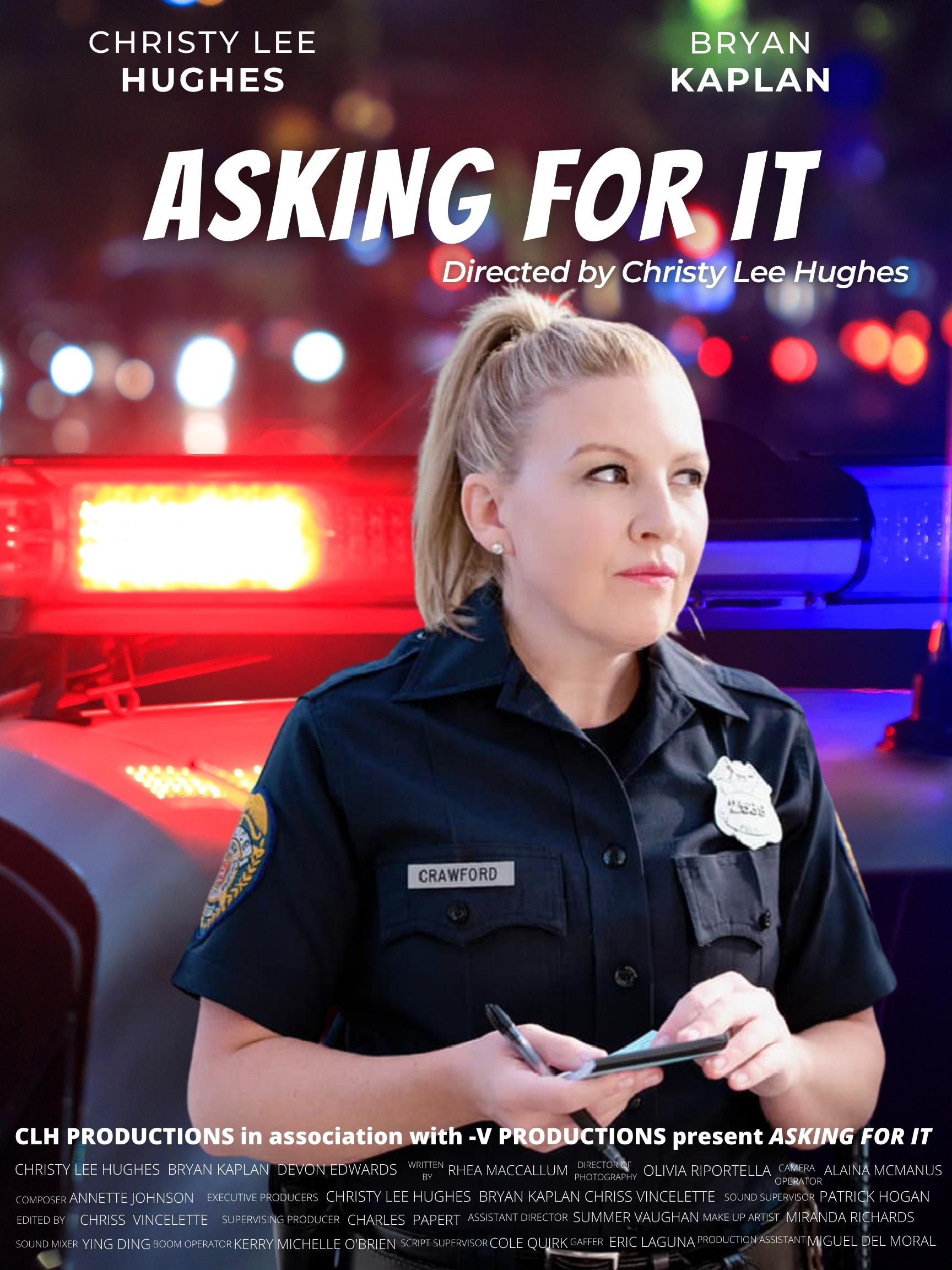DIRECTOR, WRITER AND ACTRESS OF
"ASKING FOR IT"
Gender adaptation can bring new perspectives to a story. What motivated you to adapt this play and explore gender dynamics in the context of reporting a crime?
Asking For It is a play that was published with a male lead character as the police officer was male and the victim was female. I flipped the genders of both characters and adapted this play into a film because I wanted to explore the story in a satirical way from a different perspective. Reaching out to the playwright, Rhea MacCallum, I discovered that she didn't write the police officer as male, but the publisher just assumed the police officer to be a male. Too often, we see men in positions of leadership and power. Frankly, many of us are pretty sick of seeing women being victimized on screen, so I wanted to flip the script. She allowed me to adapt and flip the genders and direct this film and for that, I am grateful. Audiences have shared how much they enjoyed it and it sheds light on the ridiculous nature of how often society and people in positions of power are less likely to believe women and assault survivors. The gaslighting that occurs is real and by flipping genders, we get to see that play out when this man tries to call for help and report a hit-and-run accident, as he soon becomes the suspect. There are many ways to interpret this, and for some, not being believed by police is what hit home and for others, this dynamic interaction feels like a metaphor for when they tried to report a sexual assault, and were not believed.
